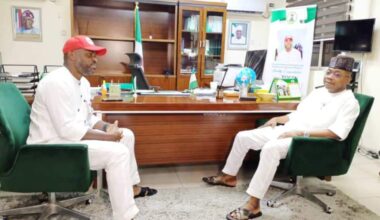Have you ever wondered why all 36 states in Nigeria do not have the same time for their governorship elections? This was not always the case at at 1999 when Nigeria returned to democratic rule in 1999.
In fact, in that period, all state governors were sworn in on May 29th of each election year. But things have changed, and today, eight states of the federation now have off-cycle governorship election.
Why?
Every Nigerian Governor’s tenure runs for four years, and this could be disrupted by a court ruling after the governor has been sworn-in. For instance, if after an election, and the winner has been sworn-in, then a court determines that another contestant actually won the election, the previous winner is removed from office, and the four-year term is renewed for the new winner.
So, for this reason, that state gets out of the normal electoral calendar, as the new Governor’s tenure counts afresh.
In the case of Kogi, this transpired in 2007, and the most unique amongst other seven states with off-cycle gubernatorial election. Ibrahim Idris won his re-election into office as governor in 2007, but the election was cancelled because the Independent National Electoral Commission (INEC) wrongly excluded another candidate, Late Abubakar Audu from the ballot.
A new election was conducted while the state’s Speaker of the House of Assembly, Clarence Olafemi, filled the position of acting governor. Idris won the election again and returned to office two months later.
After that, Kogi has had November as the period of governorship election and January for swearing-in of elected governors till date.
In a related development, Kogi shares same election date with Bayelsa and Imo.
In Bayelsa, when Timipre Sylva was elected the governor of Bayelsa State in 2007, his opponent, Ebitimi Amgbare, wasn’t pleased so he challenged him in court. Amgbare lost at the tribunal, but the Appeal Court agreed with him and ordered a fresh election in 2008. Sylva won the second election and returned to office.
Also, in Imo, the governorship election timeline didn’t get disrupted until after the last general elections in 2019. Emeka Ihedioha was elected the state governor, but the result was contested by Hope Uzodinma who finished fourth with almost less than double Ihedioha’s number of votes. Yet, the Supreme Court awarded the victory of the election to Uzodinma in January 2020, thereby resetting Imo’s future election timeline.
Thus, other states with a different date of off-cycle governorship elections are Anambra, Edo, Ekiti, Ondo and Osun.

